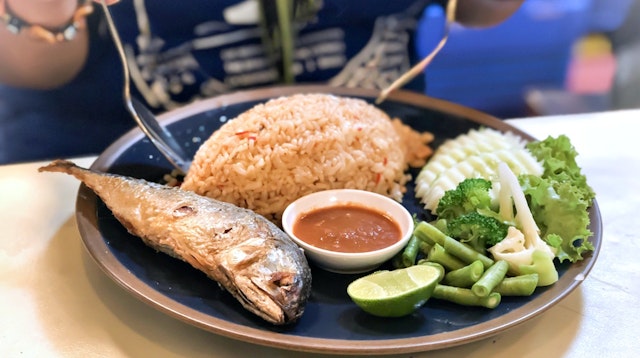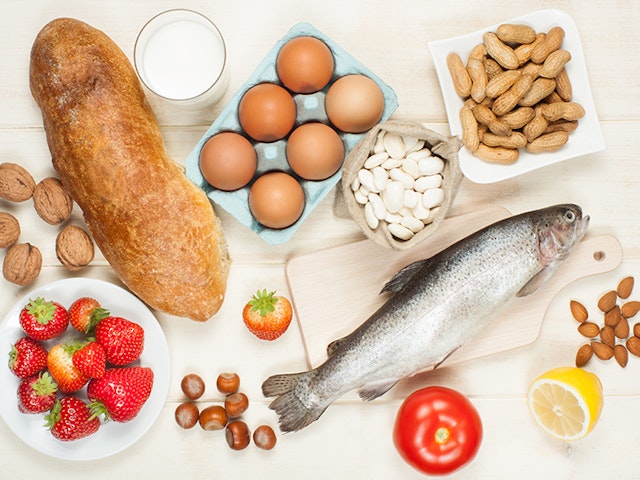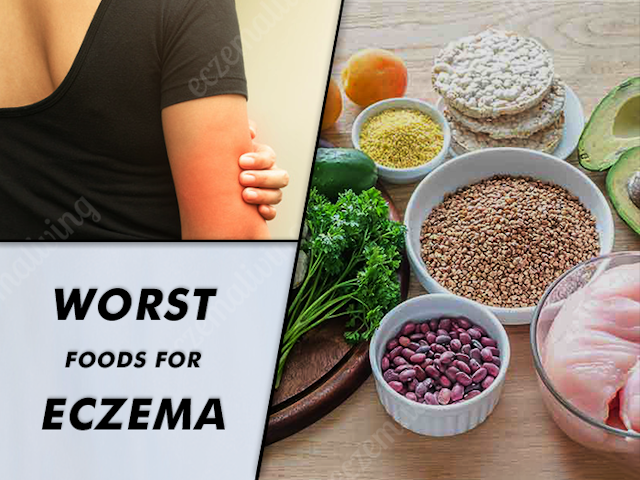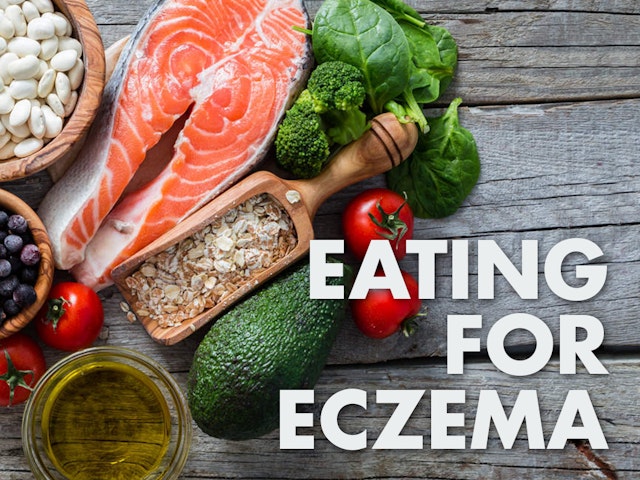Eczema Diet Plan Tips - Foods to Eat and Avoid

Experiencing eczema might be challenging sometimes, and the eczema diet will help to soothe your symptoms and prohibit skin flare-ups. When searching for an eczema diet, it may be useful to talk to your health care provider for advice and thoughts on how to deal with your eczema and diet.
The Eczema Diet Plan
Eating anti-inflammatory foods is important to the eczema diet plan, and could substantially reduce symptoms and flare-ups. Below are lists of foods that could trigger eczema and foods that will help to deal with your eczema symptoms.
Top Foods That Trigger Eczema

Dairy
Gluten
Eggs
Peanuts
Sea Food
Acidic Fruit
Diet. Now I can not easily say exactly what helps other individuals, only what works for me and how I figured it out. Required many, numerous years of experimenting so I’ll compress it all down to a single post. My suggestions are based upon the experience I have gained. Please meet with a healthcare professional regarding your specific situation prior to eliminating food from your everyday diet.
Foods to Avoid To Get Rid Of Eczema

Even though some adults report having worse eczema symptoms after eating particular foods, no studies have been able to establish a link.
“There is no science linking particular foods with flare-ups. But it will be an individual thing,” says Andrea Cambio MD, FAAD. Cambio is the medical director of Cambio Dermatology in southwest Florida. “For example, if a patient reports eating chocolate makes her eczema worse, then I'd really advise the woman to reduced or eliminate chocolate from her diet.”
There are two eczema types, Intrinsic eczema, and extrinsic eczema. Intrinsic eczema has a propensity towards diet, whilst extrinsic eczema obviously is more associated with the environment such as air. However, in my experience people usually have both but lean to one side of the spectrum.
At first, I was getting eczema so badly I couldn’t tell what food was affecting me or what, but over time it became clear that many foods have a tendency to trigger eczema over others.
Recommended Foods for an Eczema Diet

Fatty fish, like salmon and herring, that are rich in omega-3 fatty acids which are anti-inflammatory. Some people like to take Omega 3 supplements to decrease inflammation.
Foods that have probiotics and contain anti-inflammation benefits like yogurt and sourdough bread
Fruits and vegetables- the best are ones that are very rich in color - and contain anti-inflammatories properties.
Such fruit are apples, kale, blueberries, spinach, cherries and broccoli
Whole grains
Healthy fats, like olive oil
The Easy Way to Follow a Diet for Eczema
We all know your daily life is busy. Our convenient, online meal planner can make it quick and simple that you can prepare healthy meals for eczema. It's packed with nutritious recipes so delicious and satisfying perhaps the pickiest eaters will enjoy following a diet for eczema.
You can also add other medical conditions and food allergies which allows you to prepare delicious food that meets the dietary needs of your whole family.
Diet for Eczema

If you suffer from eczema, an eczema diet which includes foods high in Omega-3 fatty acids, quercetin, zinc, vitamin A, vitamin C, and vitamin E can make a positive difference in the health of your skin.
Foods Especially Included in this article Diet for Eczema
Plant protein
Vegetables
Fruit
Moderate whole grains
Moderate animal protein
Foods Especially Excluded or Limited in the MyFoodMyHealth Diet for Eczema
Dairy
Sugar per serving - less than 15 grams is acceptable and included
Delicious Foods to Eat if You Have Eczema
Even though meal planner will exclude the ingredients in the list above, below are some more notes concerning what to think about when eating for eczema. These are important to note when you're snacking or producing your own recipes.
Perhaps you'll alleviate the flame, flakes, and itch of eczema by incorporating these fruits and vegetables along with lean meats, poultry, and fish into your eczema diet. Their natural healing powers and robust flavors can sooth your skin surface and satisfy your appetite.
Omega-3 fatty acids (Has anti-inflammatory and skin soothing properties)
Flaxseed oil
Parsley
Salmon
Trout
Tuna
Quercetin (Inhibits release of histamine, acts as an antioxidant, and reduces formation of allergic compounds)
Apples
Cabbage, green
Cranberries
Garlic
Grapefruit, white
Grapes
Kale
Onions
Pears
Spinach
Vitamin A (Helps with skin disorders)
Calf's liver
Carrots
Collard greens
Kale
Spinach
Sweet potato
Turnips, green
Winter squash
Vitamin C (Provides a natural antihistamine which helps block inflammatory response)
Cabbage, red
Kiwi fruit
Oranges,
Peppers, red, bell
Potatoes
Strawberries
Tangerines and other mandarins
Vitamin E (Protects cells and promotes skin healing)
Almonds
Avocados
Brazil nuts
Broccoli
Mangoes
Peanuts
Sunflower seeds
Zinc (Builds immune system and heals skin ailments)
Barley
Chicken
Crab
Oysters
Turkey
Wheat
When your skin gets better
Finally the greater your skin becomes, the higher quality the barrier of your skin is. And the greater amount of inflammation it can actually endure. Ironically having good skin allows you to eat the majority of the things above and not get a reaction provided you don’t make it happen much.
Eventually, you're going to get to a point where eating a steak or anything you can’t eat every so often isn’t a big deal, because your skin would not be as itchy as it could possibly be if there were already open wounds in the barrier.